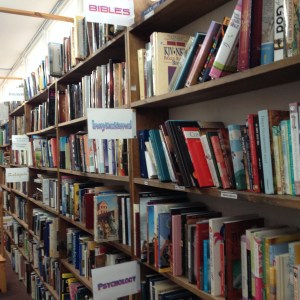All writing is fiction. I suppose that requires some unpacking. One of the first things we do when we approach a piece of writing is answer the question “what kind of writing is this?” We may not do this consciously, but we wouldn’t benefit much from reading if we didn’t. If your significant other leaves you a note stuck to your computer monitor or the refrigerator door, you know at a glance that it likely contains pithy, factual information. If you pick up a newspaper you know what to expect the contents to be like. It’s quite different if you pick up The Onion. Or a romance novel. These categories are extremely helpful, but they can also be problematic. Any writer knows that you write and others decide on your genre.
I read a lot of nonfiction. It is a kind of fiction, however, since it follows a narrative and it contains mistakes, or perhaps faulty assumptions. Moreover, nonfiction is a reflection of its own time. Geoffrey of Monmouth’s England had giants in its past. It simply did. Today we question his working assumptions just as surely as future people (if we long survive) will ours. This current generation doesn’t really excel at critical thinking. Many academics, as critical as they are in their own fields, fall into standard assumptions once you get beyond their expertise. They accept the fictions of their era just as readily as does everybody else. In reality our nonfiction is not the naked fact we like to think it is—it is the narrative of one perspective. It is perhaps the truth as it is perceived in its own time.
This may seem to be a subtle distinction, but it is an important one. Genres are very convenient handles that we use to classify what we’re reading. Very often they become straightjackets that constrain what writing has the potential to be. The word “genre” is related to the concept of genus, the classification about species. Zonkeys and other, perhaps rare, but possible cross-breedings show us that hopeful monsters of the literary world are also possible. We would soon suffer without genres in a world as full of words as this one is. We also suffer from simple distinctions that somehow become iron-clad over time. Think about the narrative that comes out of the White House. We’re accustomed to it being mostly nonfiction. At least we were until recently. Watergate broke our trust in that, and now we live in a world of fiction masquerading as reality. Critical thinking is, perhaps, the only way to make sense of any of this.

